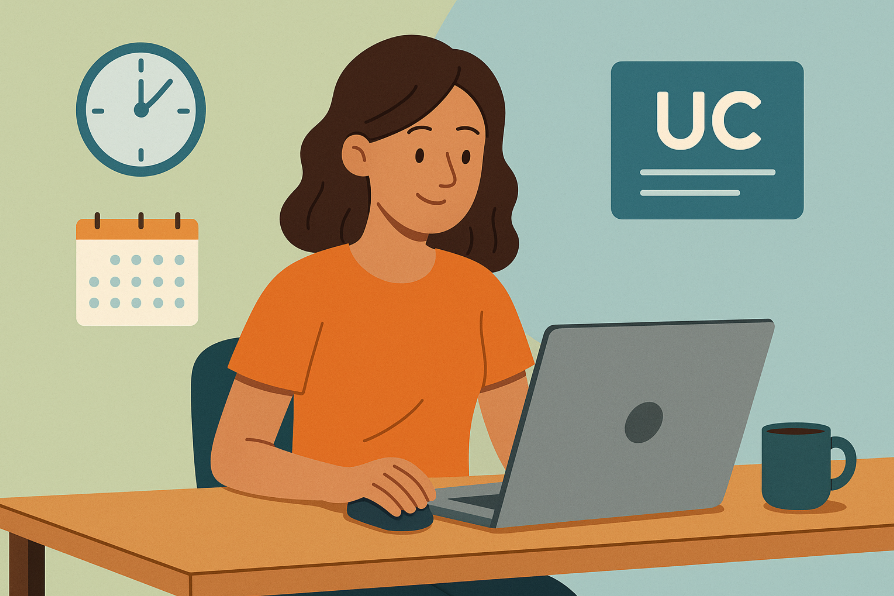Introduction
If you’re working part-time, you may be wondering: If I work 20 hours a week how much Universal Credit will I get? This is a common question in the UK, especially for people balancing work with family, study, or caring responsibilities. Universal Credit (UC) is designed to support people whether they are out of work or in work on a low income.
But the amount you receive isn’t always straightforward. It depends on your wage, household situation, housing costs, and whether you qualify for extra elements. In this guide, I’ll break everything down into simple steps, give you example calculations, and explain how working 20 hours a week could affect your Universal Credit.
What is Universal Credit and how does it work in the UK?
What is Universal Credit?
Universal Credit is the UK’s main benefit for people who are on a low income, whether they’re out of work, looking for work, or already employed. It was rolled out to replace six older benefits, including Jobseeker’s Allowance, Housing Benefit, and Working Tax Credit. Instead of juggling several different payments, you now receive a single monthly payment.
This monthly payment is made up of a standard allowance plus any extra “elements” you qualify for, such as support for children, housing, or disabilities. The standard allowance depends on your age and whether you’re single or part of a couple.
Who can claim Universal Credit in the UK?
You can claim UC if you are:
-
Over 18 (with some exceptions for 16–17 year-olds)
-
Living in the UK
-
On a low income or unemployed
-
Not in full-time education (unless you meet specific criteria)
Universal Credit is flexible. You can still get it if you’re working, but the amount you receive will adjust depending on your earnings.
How is Universal Credit different from other UK benefits?
The key difference is that UC is designed to adjust automatically as your circumstances change. If you work 20 hours a week, UC doesn’t just stop – instead, it decreases gradually based on your income. This avoids the old “cliff edge” problem with Working Tax Credit, where you could suddenly lose all support if your hours dipped below 16 or increased slightly above.
How does working 20 hours a week affect Universal Credit?

What counts as income for Universal Credit?
Universal Credit takes into account:
-
Your wages after tax and National Insurance
-
Other income (e.g., pensions, maintenance, savings above £6,000)
-
Work allowances (if eligible)
How does the Universal Credit taper rate work?
The taper rate is the mechanism that reduces your UC as your earnings increase. The current taper rate is 55%. That means for every £1 you earn over your work allowance, your Universal Credit reduces by 55p.
This ensures that work always pays: your benefits don’t disappear all at once, they reduce gradually as your income rises.
Does working 20 hours mean I earn too much for Universal Credit?
Not necessarily. Many people working 20 hours still qualify for UC, especially if they:
-
Earn the National Minimum Wage or close to it
-
Have children or housing costs
-
Work part-time due to health reasons
How much Universal Credit will I get if I work 20 hours a week?
How do I calculate Universal Credit if I work 20 hours weekly?
The calculation follows a three-step process:
-
Work out your gross monthly earnings
-
20 hours × hourly rate × 52 ÷ 12.
-
Example: 20 × £10.42 × 52 ÷ 12 ≈ £902.
-
-
Apply your work allowance (if eligible)
-
If you have housing support, allowance is £379/month.
-
If you don’t, it’s £631/month.
-
-
Deduct 55p for every £1 above the allowance
-
Example: £902 – £379 = £523 above allowance.
-
£523 × 0.55 = £287 reduction.
-
-
Subtract this reduction from your standard UC amount
-
Standard allowance (over 25, single) = £393.45.
-
Plus housing element (varies by rent).
-
£393.45 – £287 = £106.45 plus housing element.
-
So, in this example, you’d still receive UC on top of your wages.
How does my hourly wage affect Universal Credit payments?
Your hourly wage directly affects your monthly income, which in turn affects your UC. Someone on minimum wage working 20 hours may qualify for more UC than someone on £15 an hour for the same hours.
-
Lower wage = More UC support.
-
Higher wage = Less UC, but higher take-home pay overall.
What role does age and living situation play in Universal Credit?
-
Single under 25: Standard UC rate is lower (£311.68/month).
-
Single over 25: Higher standard allowance (£393.45/month).
-
Couples: Joint allowance depends on both partners’ ages.
-
Parents or disabled claimants: May qualify for extra UC elements.
Table: Example Universal Credit calculations for 20 hours per week
| Hourly Wage | Weekly Earnings | Monthly Earnings | Approx. UC after taper (no kids, over 25, with rent) |
|---|---|---|---|
| £10.42 (National Minimum Wage 23+) | £208.40 | £902 | £600–£700 (depending on housing costs) |
| £12 | £240 | £1,040 | £500–£600 |
| £15 | £300 | £1,300 | £300–£400 |
(Figures are illustrative – exact UC depends on housing, children, and other elements).
Do childcare costs and housing costs change Universal Credit if I work 20 hours?

How are childcare costs supported through Universal Credit?
If you’re working 20 hours a week and paying for childcare, UC can cover up to 85% of eligible childcare costs. This support can be a lifeline for parents, as it reduces the financial barrier to working. For example, if your monthly childcare bill is £600, UC may cover £510 of that.
If you rent, UC can include a housing element to help with rent. The amount depends on your local housing allowance (LHA) rate, which is set by your postcode and household size.
Can working 20 hours reduce my housing element in Universal Credit?
The housing element itself doesn’t reduce – what happens is your overall Universal Credit payment decreases as your earnings rise. So even if you qualify for £600 in housing element, your UC might reduce if your wages are higher.
What are the work allowances for Universal Credit if I work part-time?
What is a Universal Credit work allowance?
The work allowance is the amount you can earn before the taper rate kicks in. It’s essentially your “safe zone” where UC isn’t reduced.
Who qualifies for a work allowance?
You qualify if you either:
-
Have responsibility for a child, or
-
Have limited capability for work due to health reasons.
If you don’t meet either condition, you don’t get a work allowance – meaning UC starts reducing as soon as you earn anything.
How does the work allowance affect 20-hour work income?
-
With housing support: £379/month.
-
Without housing support: £631/month.
If you’re earning £902/month at minimum wage, the allowance ensures that not all of this reduces your UC. Only the portion above your allowance (£523 in this case) is used to calculate the taper.
How does Universal Credit support single parents or couples working 20 hours?
How much Universal Credit can a single parent working 20 hours get?
Single parents usually benefit more from UC than single adults without children, because they get:
-
The standard allowance.
-
A child element (£315 for the first child, £269 for additional children).
-
A childcare element (up to 85% of costs).
-
A housing element (if renting).
This means a single parent earning £900/month could still get £800–£1,200 in UC, depending on childcare and housing.
How are couples assessed if one or both work 20 hours a week?
UC looks at the household’s total income. If one partner works 20 hours and the other doesn’t work, UC will adjust based on the combined income. If both work 20 hours, UC will reduce more quickly, but they may still qualify for support with children or housing.
Are there extra elements for children or disability?
Yes, UC includes:
-
Child element (£290–£315 per child)
-
Disabled child element (extra support)
-
Limited capability for work element for disabled adults
How do changes in wages or hours affect Universal Credit payments?

What happens if my hours go above or below 20 per week?
UC is based on monthly income, not fixed hours. So if one week you work 18 hours and another week 22 hours, what matters is how much your employer reports as your monthly pay. This makes UC flexible for people with irregular shifts or zero-hour contracts.
How does a pay rise or lower wage affect Universal Credit?
-
Pay rise: Increases your income, which reduces Universal Credit.
-
Pay cut: Reduces your income, which increases Universal Credit.
This helps stabilise income so that sudden drops in wages are cushioned by higher UC support.
Can I lose Universal Credit if my income increases?
Yes, if your income rises high enough, your UC entitlement could reduce to zero. However, UC includes a “grace period.” If your income drops again within 6 months, you can reclaim UC more quickly without starting a brand-new claim.
What are common mistakes when calculating Universal Credit for 20 hours work?
Why do many people overestimate or underestimate their Universal Credit?
The most common mistakes include:
-
Forgetting to calculate monthly earnings (many people use weekly instead).
-
Ignoring tax and NI deductions.
-
Not applying the correct work allowance.
-
Forgetting to include childcare or housing elements.
How does tax and National Insurance affect the calculation?
Universal Credit is based on take-home pay, not gross pay. For example, if your gross earnings are £902/month but £50 is deducted for NI and pension, UC uses £852 as your income figure.
What tools and calculators can help me work it out correctly?
-
The official gov.uk UC calculator.
-
Turn2Us and EntitledTo calculators (trusted by Citizens Advice).
-
Speaking to a work coach or Citizens Advice adviser for tailored help.
Conclusion: If I work 20 hours a week how much Universal Credit will I get?
So, if I work 20 hours a week how much Universal Credit will I get? The answer depends on your wage, your age, whether you’re single or in a couple, whether you rent, and whether you have children. But here’s the key takeaway:
-
At minimum wage, working 20 hours a week still leaves most people entitled to some UC, especially if they have rent or children.
-
At higher wages, UC reduces but often continues to provide a safety net.
-
The taper rate and work allowance mean your UC reduces gradually, not suddenly.
For many households, UC ensures that even at 20 hours a week, you’re not left struggling with rent, childcare, and essentials.
FAQs on working 20 hours a week and Universal Credit
1. Will I always get Universal Credit if I work 20 hours a week?
Not always – it depends on your earnings and circumstances.
2. Do students working 20 hours qualify for Universal Credit?
Most full-time students can’t claim UC, but part-time students or those with children/disabilities may qualify.
3. Can I claim Universal Credit if I only work 20 hours a week?
Yes, you can claim UC at 20 hours if your income is low enough.
4. What is the new 30 hour rule for Universal Credit?
Couples with children must work a combined 30 hours to avoid sanctions.
5. Is it worth working 16 hours a week with Universal Credit?
Yes, UC still tops up your income even at 16 hours.
6. How much is Universal Credit going up in April 2025?
It’s rising by 6.7%, with higher standard allowances for all claimants.

I’m Adam Milne, a business writer and co-author at UKBusinessMag.co.uk. I’m passionate about simplifying complex topics—whether it’s tax, startup strategy, or digital marketing—so that entrepreneurs can take action with confidence. With years of experience in small business consultancy, I bring a practical perspective to every piece I write, helping readers turn ideas into results.



